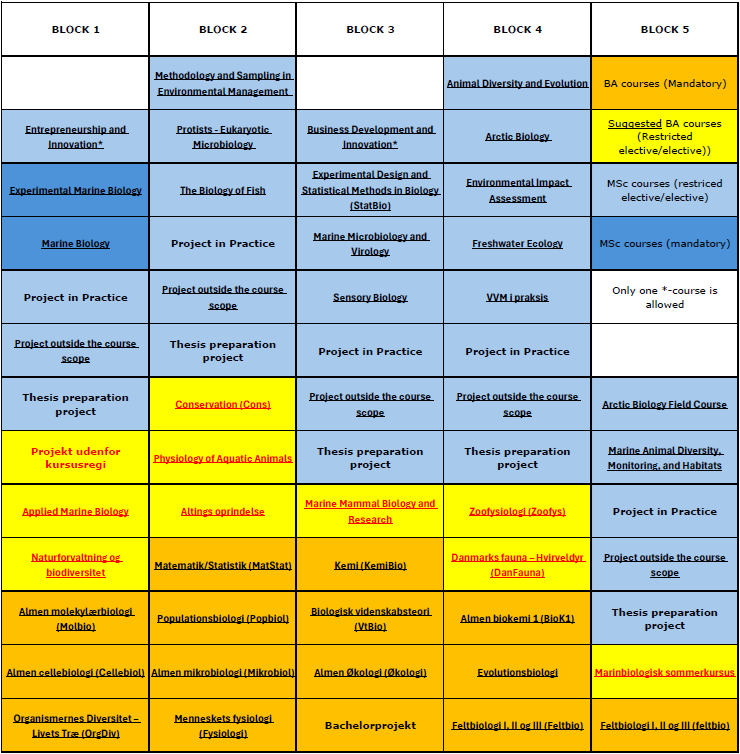Marine Biological Section

Research at MBS covers numerous basic and applied aspects in marine biology including Aquatic microbiology, Functional biology of marine animals and plants, Climate change biology, Aquaculture and bioproducts, Coral reef biology, Sensory Biology and Diversity, phylogeny and evolution of metazoans and protists.
MBS is situated both at Nørre Campus and in Helsingør in newly refurbished labs including state-of-art equipment for physiological and molecular experimental work. Together with our research vessel Ophelia this gives researchers as well as students great opportunities for hands-on study of the marine life and environment found in the Sound area.
The Marine Biological Section teaches and conducts basic and applied research in a wide range of topics, including:
- Aquaculture and bioproducts
- Arctic and coral reef biology
- Climate Change and Biodiversity
- Climate Change and Biogeochemical Cycles
- Climate-change biology
- Diversity, phylogeny and evolution of metazoans and protists
- Evolutionary Ecology
- Fish and invertebrate physiology
- Functional biology of marine animals and plants
- Macro Ecology and Community Ecology
- Microbiology
- Population Genetics
- Sensory Biology
We engage in numerous national and international collaborations, including exchange of students and staff, and our researchers are experts in every aquatic biotope from polar to tropical regions.
MBS is also host to the IOC Science and Communication Centre on Harmful Algae
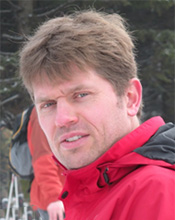 |
Anders Garm Research in marine sensory ecology and neuroethology with focus on 1) visual systems in starfish and cubomedusae, and 2) how advanced behaviour is controlled by simple nervous sytems |
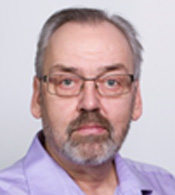 |
Bent Vismann Research in marine invertebrate physiology with focus on 1) the effect of low oxygen on the energy metabolism, 2) filter feeding bivalves including toxic algae and energetics and 3) aquaculture |
 |
Jens T. Høeg (Emeritus) Research on larval biology and reproductive systems in selected marine animals with focus on 1) The adaptive significance of reproductive systems under various ecological conditions 2) The evolution of larval development and metamorphposis in barnacles and related groups 3)The biology of marine parasites including larval forms with still unidentified adults |
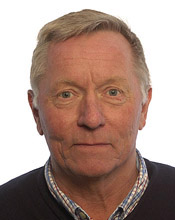 |
John Fleng Steffensen Research on fish physiology with focus on: 1) Optimizing growth of fish in aquaculture 2) Global change physiology – from the Arctic to the tropics 3) Physiological adaptations to hypoxia, hypercapnia and temperature 4) Exercise physiology of fish – from individual to schools. |
 |
Katrine Worsaae |
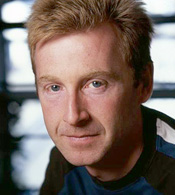 |
Lasse Riemann Research on marine bacterioplankton ecology with focus on 1) the importance and ecology of heterotrophic N2 fixing bacteria and 2) regulation and importance of bacterial community composition. |
 |
Mathias Middelboe Research in marine viral ecology with focus on 1) the role of viruses on prokaryotic diversity, evolution and nutrient cycling 2) the use of viruses to control bacterial pathogens in aquaculture. |
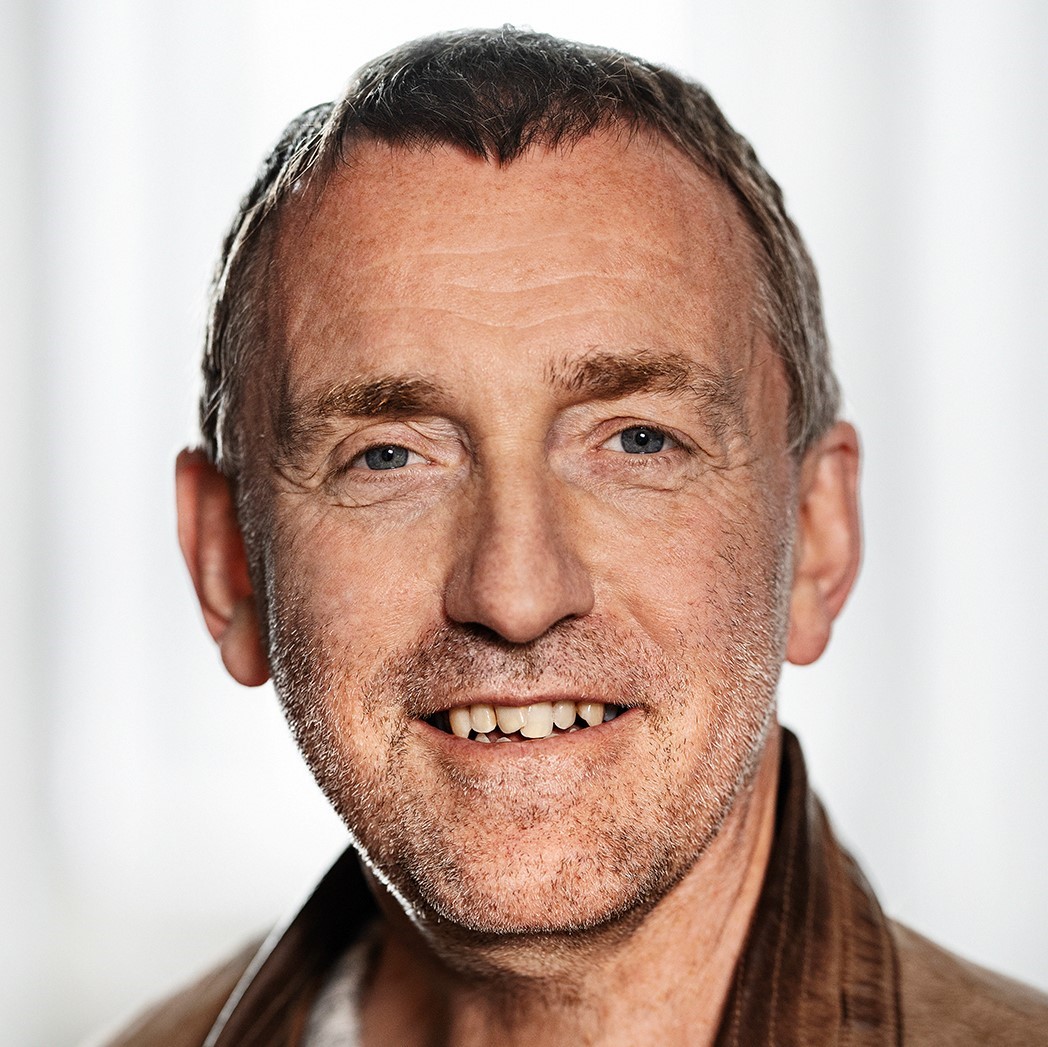 |
Michael Kühl Research on microbes, biofilms, plants and symbioses with focus on: 1) Microbial life and biogeochemistry at interfaces 2) Microenvironmental controls of cell behavior, interaction and activity in microbial communities, symbioses and aquatic plants 3) Imaging and microsensor techniques for mapping physical and chemical microenvironments and metabolic activity at high spatio-temporal resolution 4) Bio-optics and photobiology of aquatic phototrophs |
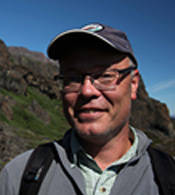 |
Niels Daugbjerg Research on molecular systematics and ecology of phytoplankton with focus on 1) diversity of marine and freshwater dinoflagellates and 2) acclimation to changes in temperature, salinity and pH. |
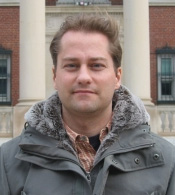 |
Niels-Ulrik Frigaard Research in ecophysiology and bioengineering of photosynthetic microorganisms. 1) understanding metabolic pathways related to photosynthesis and biosynthesis of native and nonnative metabolites. 2) Practical applications of photosynthetic microbes and their pigments and other metabolites. |
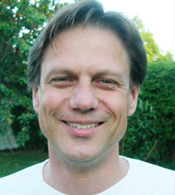 |
Per Juel Hansen (Head of Section) Ecology and physiology of marine protists. Currently, focus is on 1) discovering new toxins in marine microalgae and study their effects on the marine food web and 2) The role of mixotrophy in marine protists |
The staff at MBS is highly dedicated to teaching at all levels and we offer a broad range of courses within marine biology and related topics. Our research interests cover everything from marine microbiomes to the physiology of marine organisms to large scale phylogeny and management of the marine environment.
All these interests are included in our courses to ensure that our teaching is at the cutting edge of the topics. This is especially true for our experimental courses and projects, where the students get hands-on experience with the latest techniques. Hands-on experiences are an important part of the biological education and we also include this in our different field courses.
At MBS, we also have great experience with supervising all sort of projects, and some 40+ individual or group projects are completed annually. For more details about our teaching, see below.
The Marine Biological Section is placed on two physical locations: Strandpromenaden 5, 3000 Helsingør and Nørre Campus, Universitetsparken 4, 1st floor, 2100 Copenhagen Ø. Several facilities in Helsingør are shared with the neighboring Øresund Aquarium. Several facilities in Copenhagen are shared with the department's Freshwater Section, which is located at UP4, 3rd floor.
Strandpromenaden, Helsingør
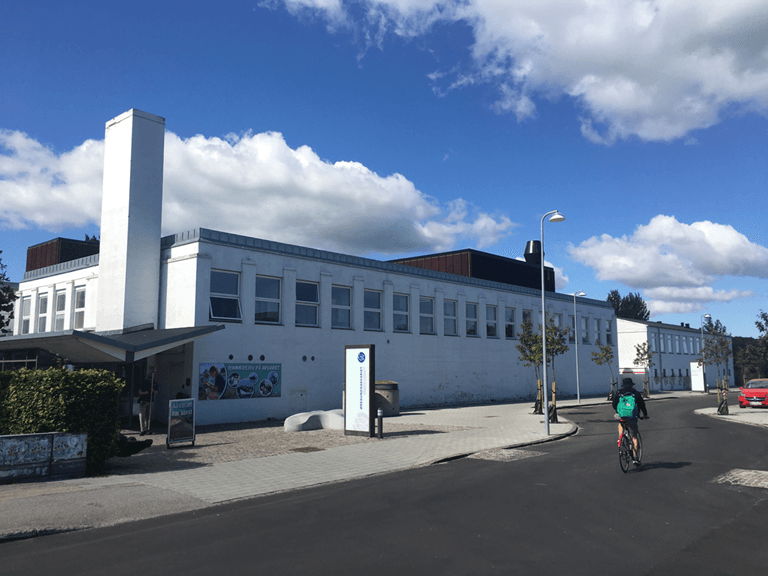
The buildings in Helsingør include, beside office spaces for personnel and students, 9 functional laboratories, 6 climate rooms, an auditorium, and 2 teaching rooms (both with running sea water) for 16 and 32 students, respectively.
The lab-facilities support a wide range of research disciplines and techniques, and contain in addition to the most appropriate modern experimental equipment:
- Flowcytometry
- Molecular laboratory (RNA/DNA), GMO classified
- Optical coherence tomography system (Thorlabs Ganymed II).
- Setups for construction and testing of fiber-optic, planar, & particle-based optical sensing.
- Automated measuring setups for electrochemical and fiber-optic microsensor measurements
- Fiber-optic and imaging systems for chlorophyll fluorescence measurements
- Hyperspectral imaging system (300-1100 nm)
- Life-time based ratiometric imaging systems for chemical imaging of O2 and pH.
- Flow-injection analysis system (FeLUMEII) for automated chemical analysis.
- Coral growth facilities (1000 L tank + several smaller tanks, closed system).
- Bioimaging: Light-, UV- and laser microscopy, for high quality- and live imaging
- Automated respirometry for invertebrates and fish
- Swim tunnel respirometers for exercising fish
- Equipment for video tracking of fish – live w. optional feed-back as well as post experiment
- ECG, blood flow and blood pressure equipment for fish cardiac physiology
- Temperature preference systems for fish
- Radio isotope facilities
- Algal culture facilties
- Recirculating seawater system with sandfilters, protein skimmers, ozone and uv and a capacity of 25 m3/h and 240 m3 in total. App. 30 psu and temperature controlled at 10 and 5 degrees celsius.
- HPLC system for analysis of pigments and other compounds
- C-N analyzer
- Coulter counter
- 2 large wetlabs for experimental work
- 6 climate rooms (2-25 degrees celsius)
- 3 vessels/boats for research and collection including trawling- and dredging gear, coresampler, Van Veen sampler, CTD (SBE25), video and diving, 240V outlet and salt water pump.
Universitetsparken, Copenhagen
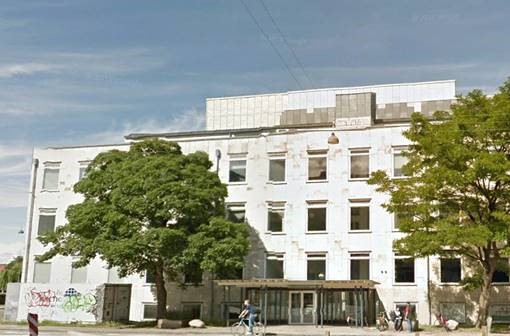
The facilities in UP4, Copenhagen includes besides office spaces for personnel and students, 8 functional laboratories, 11 climate rooms, and 1 teaching room for 34 students.
- Algae culture collection
- Molecular laboratory (RNA/DNA)
- Electron microscopy laboratory with multiple advanced facilities for embedding, thin and thick sectioning, and stainings (including 3 older and a new UC7 Leica Ultramicrotome), as well as a critical point dryer a.o. for SEM specimen preparations.
- Slide scanner for serial high-quality histology imaging
- Immunochemistry laboratory
- Transmission electron microscope
- In situ hybridization laboratory
- Olympus FV1000 confocal Laser scanning microscope with 4 lasers
- Two computer working stations with 2 Imaris, and 1 Amira licenses for 3D analyses
- Multiple advanced light-, UV- and spinning disc microscopes (upright and inverted) with automatized camera/video for high quality- and live imaging.
- Electro-physiology laboratory
- Wetlab for experimental work
- 11 climate rooms (4-21 degrees celsius)
Research vessel "Ophelia"
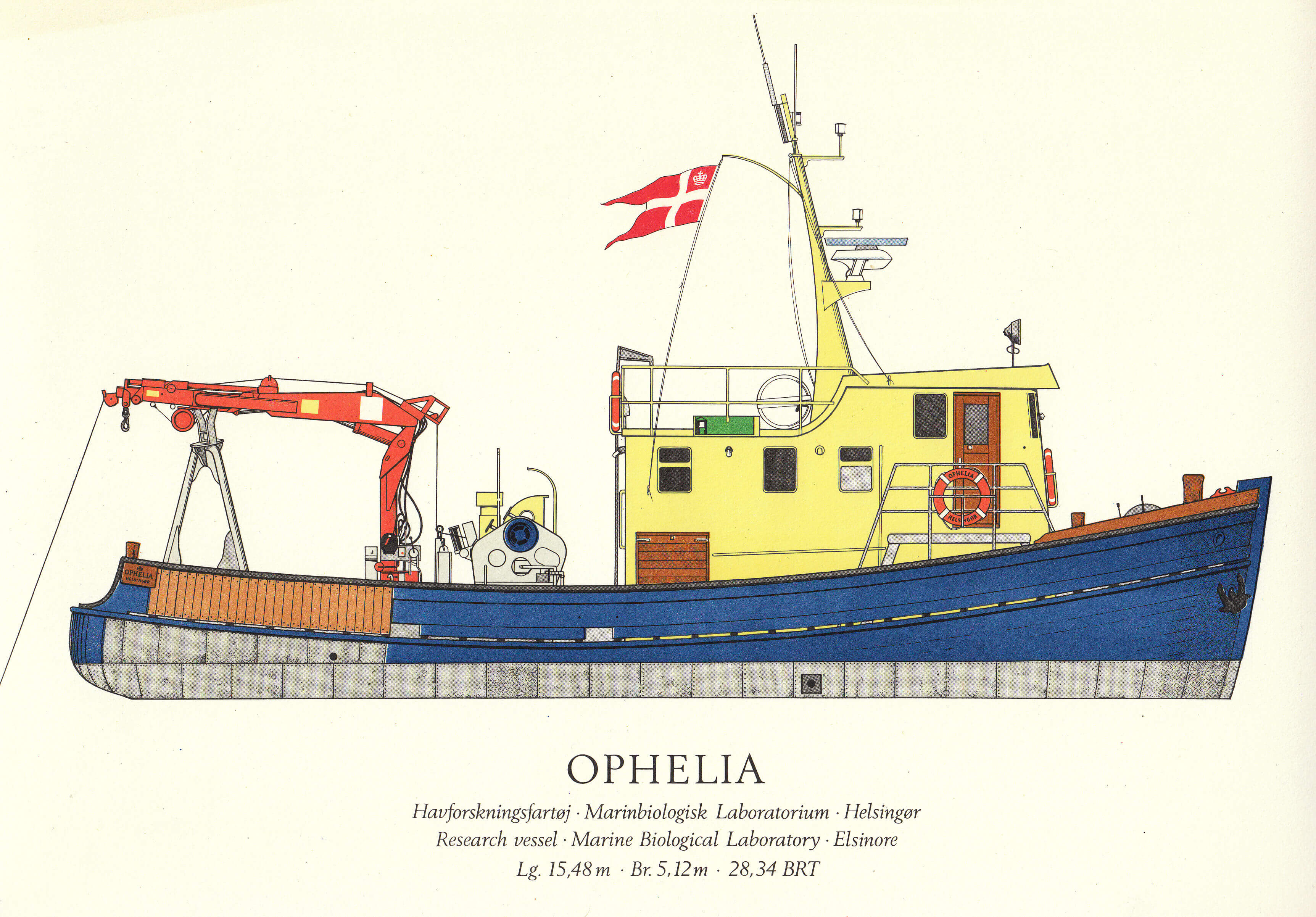
Click HERE to see Ophelia's current position.
Øresund Aquarium is a small saltwater aquarium located close to Øresund (the Sound) at the Nordhavnen marina in Helsingør/Elsinore. The aquarium is part of the Department of Biology and is a knowledge-based centre for the marine environment in close connection to the Marine Biological Section, offering experiences and inspiration for all!
A visit to the Aquarium offers insight into the amazing, and to most people completely unknown, world that unfolds in Danish straits and inlets. The Øresund Aquarium specialises in displaying the exciting and colourful marine life of Øresund and the sea of Kattegat. Due to the special currents and salt conditions of Øresund – a strait that provides conditions similar to those of an inlet towards the surface, whereas towards the sea bed the conditions are similar to those of open sea – the Øresund Aquarium lets you experience most marine species found in Danish waters.
Contact
Marine Biology Section
Strandpromenaden 5
DK-3000 Helsingør
Universitetsparken 4 1st floor
DK-2100 Copenhagen Ø
SECTION HEAD
Associate Professor
Anders Lydik Garm
Email: algarm@bio.ku.dk
Phone: +45 51 82 70 04




